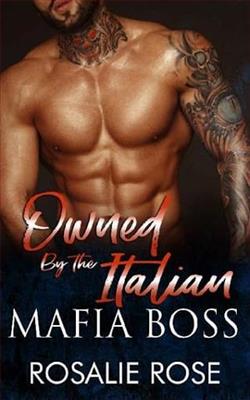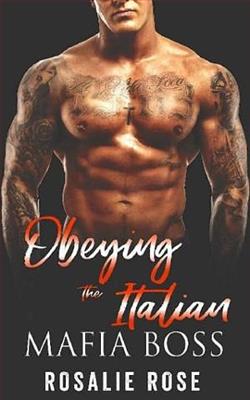Page 42 of Bay of Plenty
“I agree,” Declan said. “All of my instincts, my years of experience, tell me we have to watch this transaction. But what is the link?”
Chapter Twenty-Six
Kui warmly greetedDeclan, Mum, and me at the marae that evening. The carved meeting house rose strong and serene from the open grass, surrounded by thick bush beating with birdsong. In contrast to its tranquility, I was a turmoil of emotions, excited about being here, but also anxious about this new way of investigating, and of embarrassing Kui.None of your journo questions, girl,she’d cautioned me in the waves.
She pointed to the entrance. “See how it’s shaped like enclosing arms? Shows this is a sacred, communal place for us to stand and belong.”
“What a beautiful way to put it.” I sighed.
We chatted until people started gathering. “Wait here,” Kui said, and took her place at the front.
She became the caller, giving the karanga, the ceremonial call of welcome, which remembered the dead and spoke of their reason for gathering tonight.
The men lined up for the haka, the ceremonial dance. Their movements were free, each man showing his own feelings—one with tongue protruding, another with his eyes enlarged, someone else slapping his thighs and arms.
I was dazed by the passion and vigor. “The strength of the emotion here. It runs so deep. It—it’s humbling.”
Kui, Mum, and Declan stared at me. “Yeah, not the Isla you’re used to,” I said. “I’m not sure where this is coming from.”
After we greeted the elders, Kui’s son Rangi appeared at my side and introduced himself. He was slighter than how I remembered Kingi, his long hair wrapped into a topknot and his visible skin covered in tribal tattoos. His chin tipped to the sky, a gesture like Kingi’s.
He motioned for us to follow him around back to the hangi pit, where a group of men were hauling up wire baskets filled with food.
“I’ve never seen anything like this,” Declan said, as he peered into the earth oven. “How’s this all work then?”
Rangi leaned on his shovel. “The food’s been in this umu for four hours. We dig about three feet down and lay heated stones. On top of the stones, we put these wire baskets lined with puka leaves. As you can see, they’re filled with veggies, lamb, chicken, and seafood. Then we cover the baskets with wet sacks.” He gestured to the men. “Some of these guys have been here for four hours covering up the steam that escapes.”
“Such a long time to make one meal.” I was familiar with this process, but I’d never deeply considered it before.
He seemed surprised. “Yeah, I suppose, but every part of it brings us together.”
*
I chatted about babies with Rina and the parents watching their toddlers, joked with Mum’s golf friends about their games, and got surf tips from Rangi’s friends and a run-down of their hairstyles. Petey, who had an impressive curly mullet, mentioned he worked at the port in The Mount. I made a mental note of that but restrained myself from asking himabout his job. When it was dinnertime, we ate at picnic tables outside. Then Rangi took Declan off to talk about the iwi’s customs and show him the marae. Bevan stayed with me, while Rina strolled with Mum.
“Nice to talk to you about something other than work,” Bevan said. “We have to get together and do things that real-life friends do.”
“I’m sorry,” I said, shamefaced. I wanted to think of her as a good friend who happened to be a newspaper editor. But I couldn’t afford to do that yet. Maybe after I was sure my parents were safe. “You know how complicated being a journalist is.”
She smiled ruefully. “Try being a journo in a small town.”
“How do you do it?” I asked, shaking my head. “How do you keep apart from the rest of the town, stay impartial?”
“You can’t. You have to be in it. And you can’t fall out with people,” she said. “It’s not like in London, where you can piss off someone, but who cares, because others will help you. In a small town, you’re accountable for your actions. Everything comes back to you.”
That wasn’t quite true. Snow had got away with something. I was sure of it. And the more I heard about Sarge, the more I questioned the brevity of his investigation and the way he’d doubled down on his finding that Janey had taken her own life.
“Tonight has been special, that’s for sure,” I said. “I was dreading coming back.” We were both silent. My heart sputtered. We’d never talked about this, even when we left town together for journalism school. It was a pivotal moment for us.
She laid down her knife and fork. “I wish I’d stood up for you, yelled at them, reported them. Something.”
I understood why she didn’t. What kid would? But it felt good that she wished she had.
“You did more than anyone. You were friends with me. That was brave, considering. And they did the same to you.”
“They gave me shit because of our pig farm. I didn’t care. I was proud of our farm and our hard work. That was on them.”
I shifted in my seat. “If I’m honest, I feel a twinge of jealousy. You’ve got a great attitude. You came back here, and you are happy and successful. The same place I’d run from.” Did that mean she was stronger than me?Does she have something I lack?I was always certain running away and staying away was the only answer.















